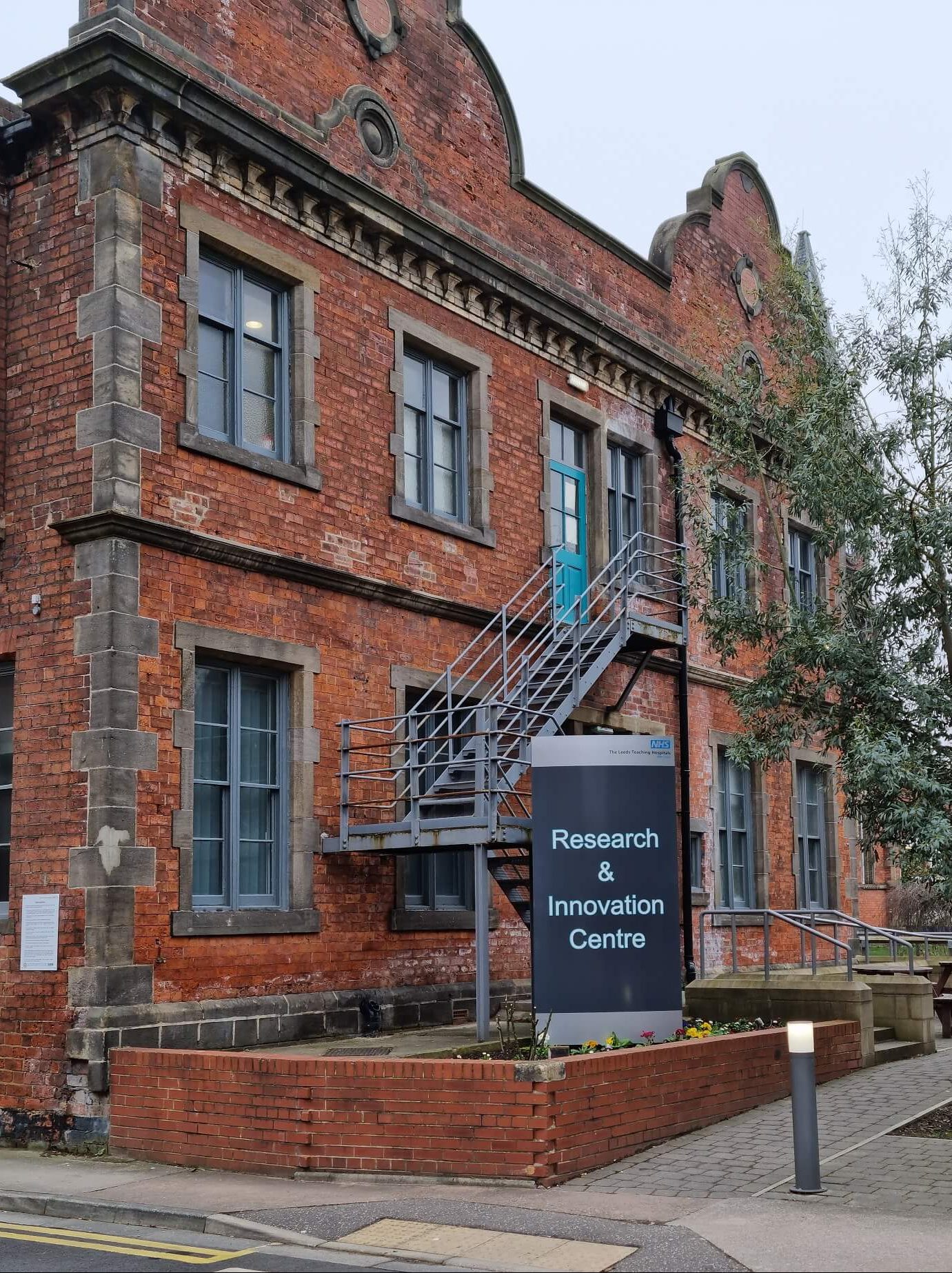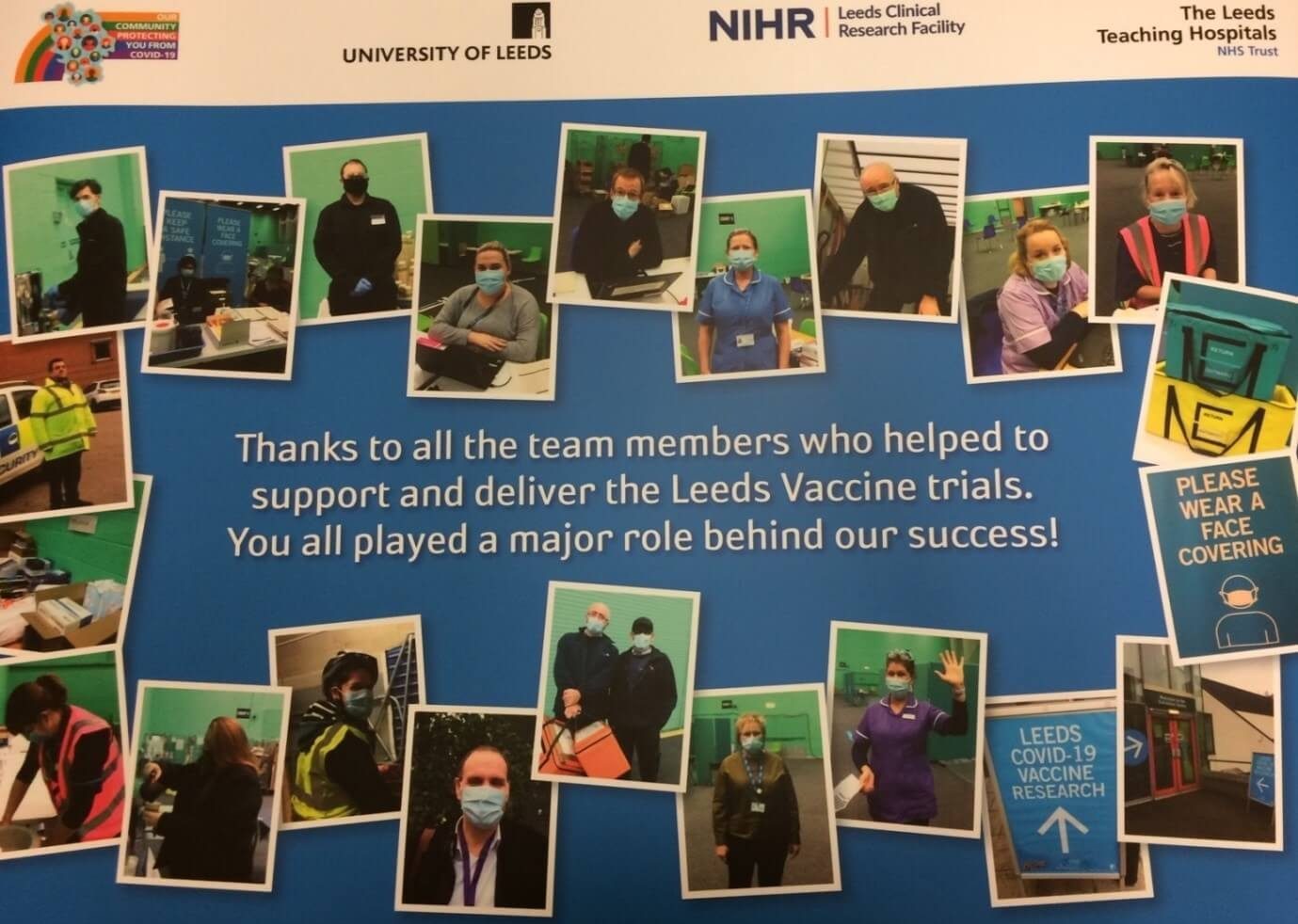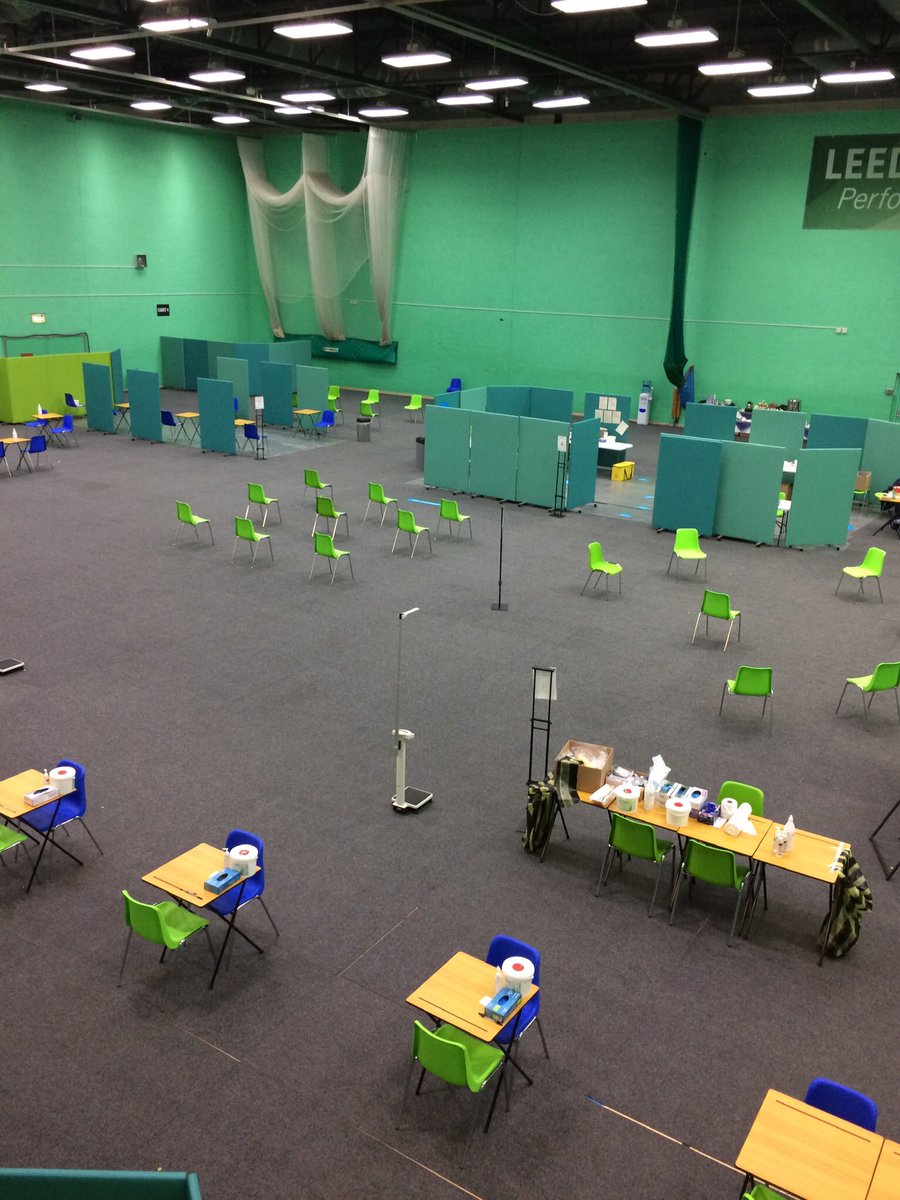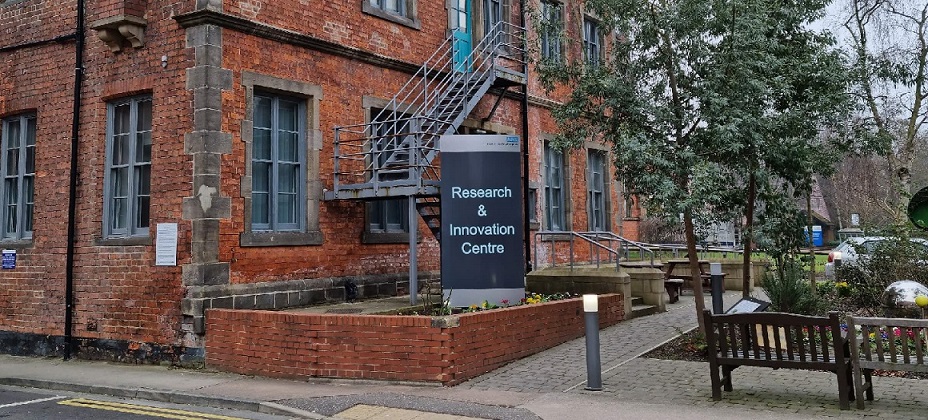11th March 2021
The COVID-19 pandemic required an urgent response from both clinicians and researchers across the world. UK Clinical Research Facilities have worked collectively with their local infrastructure and research colleagues to ensure patients were supported clinically and that studies designated as NIHR Urgent Public Health portfolio were set-up rapidly to determine effective diagnostics, treatments and vaccines for COVID-19.
It’s been a year today since the World Health Organisation declared COVID-19 a world-wide pandemic and we would like to take the opportunity to thank everyone who has been involved and reflect on what has been achieved. There are many examples of enormous commitment and flexibility by CRFs during the last year. One example from NIHR Leeds CRF is shown below, highlighting what can be achieved from collaborations. You can also see links to other COVID-19 blog posts on the right hand-side, including the adaptations and success at NIHR Sheffield CRF, experience of vaccine research participants at NIHR Imperial CRF and what we did during the pandemic at NIHR Cambridge CRF.
This is part of the NIHR’s #ResearchVsCOVID campaign.

In March 2020, like the rest of the world, we realised that everything was about to change. As the Covid 19 pandemic arrived, the Leeds Teaching Hospitals Trust (LTHT) Research and Innovation (R&I) Department acted swiftly in gathering senior members from the NIHR Clinical Research Facility (CRF) and NIHR Biomedical Research Centre (BRC) along with Trust Pharmacy, Pathology, Radiology, Governance, Study-set up, Industry Liaison, Medical and Nursing teams. The aim was to work together as ‘one team’, combining experience and expertise to speedily action plans to deliver important Covid 19 research. In recognition of the requirements of the pandemic, the NIHR Leeds CRF Director took the leadership role of Interim Director of R&I in June 2020.
Setting up 'One Team'
Leeds Teaching Hospitals consists of five separate estates across the city, with the R&I department based at St James’s Hospital. However many of the key support services leads and other research infrastructures are based on other sites. Before the pandemic, R&I senior management met monthly, with other monthly meetings with relevant teams such as finance.
When the pandemic was announced, plans were quickly put in place to enable R&I to coordinate and respond rapidly to support our clinical colleagues. This included the majority of the office based staff at R&I moving to working from home. Part of these initial plans was to deploy the R&I Bronze Command scheduled on Zoom for the same time each week day. Members included the R&I Clinical Director, R&I Director of Operations, R&I Head of Nursing, and senior members from the Leeds CRF (Clinical Director and Manager), BRC, R&I Study Set-up team, Governance, Data and informatics, Communications, Business Managers, Pharmacy, Pathology and Radiology.

The benefits of 'One Team'
The meetings typically lasted an hour, with each member providing updates and assisting in problem solving. By enabling the whole R&I infrastructure to meet together daily, we were able to share resources, connections, knowledge and expertise, enabling rapid outputs. However by meeting every day it also connected the team together, as one. There was time to catch-up, check-in with each other and make sure everyone was okay.
Together we achieved:
- Created a Covid 19 Research Delivery team, consisting of 70+ individuals, within two days of the first Covid 19 positive patient being admitted to our hospitals.
- Opened Covid 19 Urgent Public Health studies within five days of being selected as a site. This enabled us to provide as many as possible potential treatment options for our patients.
- Used video conferencing to train staff across the region in new skills to be able to successfully deliver these complex studies. This supported the regional agile research delivery team created to support the Harrogate Nightingale Hospital.
- Developed new training programmes to support nurse consenting procedures and remote study eligibility screening to increase recruitment.
- Recruited the first patient in the world to the RUXCOVID study and the first patient in the UK to the CANCOVID study (early phase studies).
- Assisted non-research clinical services to remain operational by providing available space on the Clinical Research Facilities to support on-going general surgery and a 24/7 staff well-being and support drop in clinic provided by the Psychology Team.
- Supported our research teams well-being, whether they were working clinically or remotely from home by providing daily updates, video ‘check in’ calls, promoting achievements, recognising staff who went ‘the extra mile’ with Research Champion awards.
- Engaged and involved patients and members of the public from a range of backgrounds to help us develop a regional logo, frequently asked questions (FAQs), short stories (“COVID and Me”) and animated videos about research, Covid 19 and vaccines.
- Actively promoted and encouraged local people to register their interest in taking part in Covid 19 Vaccine research trials across multiple media channels leading to Leeds being the leading area with the highest number of volunteers in the UK.
- Delivered a vaccine trial at the University of Leeds Sports Hall that recruited over 1000 people in four weeks. The Thackray Medical Museum (based in the grounds of St James’s Hospitals Leeds) will be hosting our team to deliver the follow-up visits over the next 12 months.


Overall, working as one team we are delivering 77 Covid 19 related studies throughout the Trust, of which 31 are classed as Urgent Public Health.
One Year Later
Nearly a year on the Bronze Command Meetings continue, albeit in a slightly different format to when they first begun. Each day is dedicated to a single focus such as non-covid research, on-going covid research, new covid studies, vaccination trials and trials of interest. As working from home is to continue for the foreseeable future, so will the Bronze Command Meetings.




